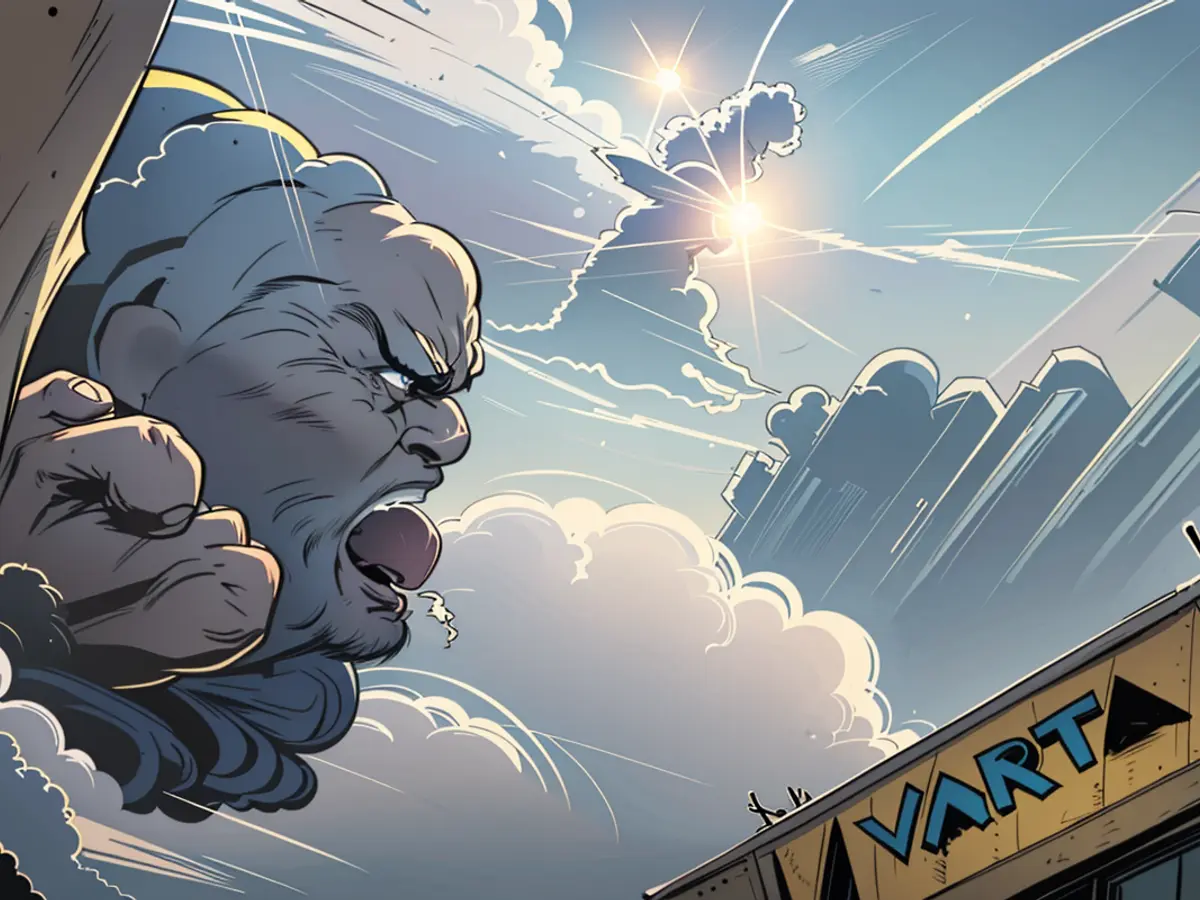- On the brink of unfolding, here's the predicament facing Varta.
Troubles Pile Up for Battery Giant Varta
Recently, battery manufacturer Varta has faced a series of challenges: a cyber assault on production, missed financial projections, being demoted to the fourth tier of the stock market, and falling short of revenue objectives. Witnesses have observed the traditional German company, based in Ellwangen, slipping further into crisis, despite batteries being viewed as future products.
It appears that the fight for survival has at least temporarily come to an end. Over the weekend, the company announced an agreement with creditors and investors. However, the restructuring plan includes some bitter pills. Concerns remain: What lies ahead for the Swabians? And what led to this point?
Debt reduction and Porsche involvement as a rescue
The plan has two primary components: a debt reduction and an extension of credit will reduce liabilities from approximately 500 million euros to 200 million. Then, the share capital of Varta AG will be reduced to zero. The result: current shareholders will depart without compensation, and the company will lose its stock market listing. Shareholder representatives have already expressed their opposition.
In addition to the current majority shareholder Michael Tojner's company, Porsche From Stuttgart will also be involved in Varta. Both will contribute 30 million euros each. An additional 60 million will be provided by creditors as a loan. If everything progresses as expected, the project will ensure the financing of Varta AG until the end of 2027. Varta had filed for pre-insolvency restructuring in July.
Company with a rich history
The origins of Varta, which stands for "Distribution, Charging, Repair of Portable Accumulators," can be traced back to 1887. Even explorer Fridtjof Nansen used Varta batteries on a polar expedition. Today, Varta bears little resemblance to the company that started as a portable battery factory in Hagen. The reason: Varta encountered a crisis in the 1990s, was broken up, and sold off in parts.
Boom through batteries for wireless headphones
Tojner became involved in 2007. He purchased the microbattery division and took it public ten years later. Tojner appeared to have a keen eye: the IPO was successful. Development was primarily driven by the rapidly increasing demand for rechargeable lithium-ion batteries, such as for wireless headphones and smartwatches.
In 2019, Varta also repurchased the household battery business. The company nearly quadrupled its revenue within a few years. Millions were invested to expand production, and debts were incurred. During this time, Varta also entered the development of battery cells for electric cars.
Transition from hope to restructuring plan
Cracks began to appear in 2022: Varta seemed to have become overly reliant on one of its major customers - Apple. When Apple sought an alternative supplier, the business was under pressure. The then-Varta CEO, Herbert Schein, missed revenue and profit targets, and soon stepped down.
Following this, the global economic downturn and high inflation for consumer electronics further impacted Varta. Demand for the small batteries decreased. Competition from the Far East and supply chain issues also burdened Varta.
Niche in electric car batteries
Additionally, Varta's electric vehicle battery remained a niche product. The battery is intended for hybrid vehicles and can only store a limited amount of energy. It stores energy that is generated during driving, such as during braking, to power an electric motor that supports the internal combustion engine.
Varta's management continued to claim that there were many interested parties. However, Porsche is the only known customer. Porsche plans to acquire a majority stake in Varta's subsidiary, V4Drive Battery, to urgently secure hybrid powertrain batteries for the Porsche 911 Carrera GTS.
Tojner: "We set the bar too high"
Challenges in operations, high debt, and deep losses - Varta continued to slide into crisis. Employees were put on short-term leave, and later, hundreds of jobs were cut. Things were made worse by a cyberattack in the spring that halted production at German sites.
Employee and shareholder representatives blame the crisis on management errors. Tojner, the chairman of Varta's supervisory board, recently admitted in the "Frankfurter Allgemeine Zeitung": "We set the bar too high. We initiated various projects, invested heavily, and expanded production."
Too much money was invested recklessly, Tojner stated. The crash was the result of inadequate risk assessment and organizational overload. "In hindsight, the supervisory board, with me at the helm, must also acknowledge mistakes. I should have insisted on thorough risk analyses much earlier," he conceded.
What's next?
Varta intends to maintain all German sites. There will be a modest reduction in administrative jobs, but production will seek additional workers. The ultimate impact on the current workforce of around 4,000 is yet to be determined.
The agreement must be finalized and submitted to the insolvency court in the coming weeks. The bodies of the involved parties must agree, and the Federal Cartel Office must give its approval. It is expected to take several months for the concept to be finalized. It is hoped that the process will be completed this year.
Despite the restructuring plan, the future of Varta remains uncertain. With the loss of its stock market listing and current shareholders being left without compensation, the company will heavily rely on debt reduction and financial support from Porsche and creditors to stabilize its position in the news.
As Varta moves forward with its restructuring plan, stakeholders and the German public will closely monitor its progress, hoping for a successful turnaround in the news.








